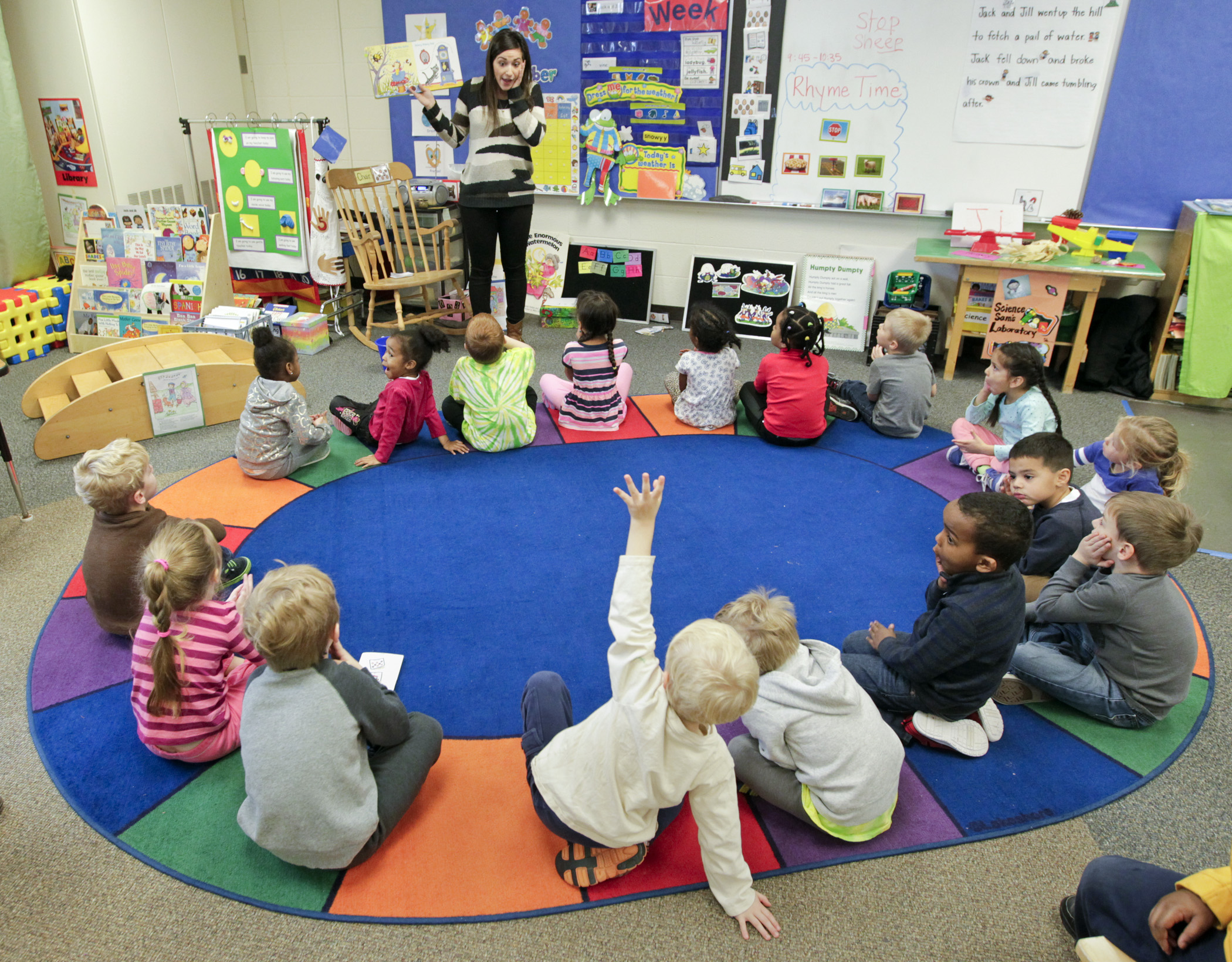Permanent funding sought for voluntary pre-K, school readiness programs

Investing in young learners is essential for better life outcomes for all Minnesotans.
That was the message from Rep. Connie Bernardy (DFL-New Brighton) Tuesday as she introduced HF2655 that seeks permanent funding for the expanded Voluntary Prekindergarten and School Readiness Plus programs.
The programs help underprivileged families, mostly minorities and people of color, make use of high-quality early learning opportunities for their pre-kindergartners and prepare children for future academic success.
The House Early Childhood Finance and Policy Committee approved the bill 10-3 and referred it to House Education Finance Committee. It doesn’t have a Senate companion.
Currently, the programs serve a total of 7,160 children throughout the state in 135 school districts and charter schools at 219 locations.
The uncertainty about long-term funding makes planning and execution difficult, said Karl Brown, director of community education for Mounds View Public Schools. Locked in funding would go a long way to help the program and potential beneficiaries.
Rep. Peggy Bennett (R-Albert Lea) asked why the programs’ funding is not based on student enrollment, as is done in K-12.
Rep. Dave Pinto (DFL-St. Paul), the committee chair, said that is because districts don’t get the money for pre-kindergarten. Rep. Jim Davnie (DFL-Mpls) added that many families in small communities rely on schools to fulfill that need.
“Targeting the need is critical,” said Bennett. “Let’s put more money in scholarships so we can fund the need. … If we simply fund the program, and in some areas perhaps, those slots don’t fill up or go to families who can afford to pay for their children. We really need to target on the need.”
She said a scholarship model would work better as adding scholarships put power in the hands of families.
Bills laid over
The committee also laid over a pair of bills sponsored by Rep. Carlie Kotyza-Witthuhn (DFL-Eden Prairie).
HF2660 would modify the appropriation and distribution for the Head Start program, which helps the comprehensive development of children (birth to age 5) from low-income families to promote school readiness.
Kotyza-Witthuhn said the program expands early learning opportunities for children while helping parents grow themselves. And Mary Lockhart Findling, Head Start director at United Community Action Partnership, said it improves outcomes for children from low-income families and connects parents to their community.
The bill, which has no Senate companion, would designate 10.72% of the state appropriation to Head Start for Tribal Head Start programs. It would also add an additional $5 million to the base funding for the Head Start program beginning in fiscal year 2023, making the state’s appropriation $30.1 million for fiscal year 2023 and beyond.
Another bill sponsored by Kotyza-Witthuhn, HF3272 would provide a $450,000 grant to The Family Partnership for a pilot project to boost executive functioning skills in children age 3-5 and their parents through its Executive Functioning Across Generations 2Gen curriculum.
Senior vice president John Till said the program uses a language-based approach that involves reading books, play activities and teaching mindfulness skills.
The project would be spread across 15 sites in Minnesota and help generate valuable data about what works among diverse populations in different locales.
“I think it’s so critical that we do test these programs and curriculums across the state to make sure they are working as intended,” said Kotyza-Witthuhn.
Sen. Carla Nelson (R-Rochester) sponsors the companion, SF2562, that awaits action by the Senate Education Finance nd Policy Committee.
Related Articles
Search Session Daily
Advanced Search OptionsPriority Dailies
Legislative leaders set 2026 committee deadlines
By Lisa Kaczke Legislative leaders on Tuesday officially set the timeline for getting bills through the committee process during the upcoming 2026 session.
Here are the three deadlines for...
Legislative leaders on Tuesday officially set the timeline for getting bills through the committee process during the upcoming 2026 session.
Here are the three deadlines for...
Latest budget forecast projects nearly $2.5 billion surplus, but red ink down the road
By Mike Cook Three weeks before Christmas, state budget officials provided some merriment to Minnesotans. However, Grinch-like transformations lurk.
Released Thursday, the November ...
Three weeks before Christmas, state budget officials provided some merriment to Minnesotans. However, Grinch-like transformations lurk.
Released Thursday, the November ...